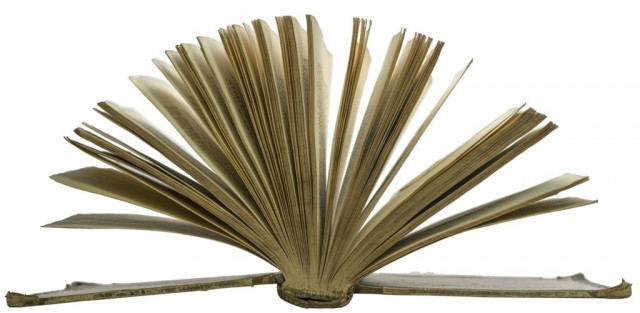Book reading:‘Between India & Pakistan, Kashmiris must be heard’
Author says Maharaja Hari Singh probably favoured an independent Kashmir.

Author says Maharaja Hari Singh probably favoured an independent Kashmir. PHOTO:FILE
“The view that only governments of India and Pakistan can decide on the Kashmir dispute is incorrect. Let the people of Kashmir decide; it is the fate of their homeland that hangs in the balance,” Australian author Dr Christopher Snedden said on Monday.
He was speaking about his book The Untold Story of the People of Azad Kashmir at the Oxford University bookshop.
The talk focused on how the Kashmir had influenced the foreign policies of the two countries.
Snedden said Jammu and Kashmir was one of the most desired areas of the region, owing the fact that it was one of the largest princely states in the colonial era.
He said most of the princely states had opted to join India but Kashmir’s case was “peculiar.”

“Jammu and Kashmir was coveted by both India and Pakistan because it bordered both the countries. The area became problematic and resulted in a tug of war between the two countries,” he said.
He said Maharaja Hari Singh, the ruler of Kashmir at the time, probably favoured independence of the state but the British had indicated that he could only choose between India and Pakistan.
The Untold Story of the People of Azad Kashmir has eight chapters.
Snedden said that the first three chapters argue that Jammu and Kashmir was undeliverable to both India and Pakistan in its entirety in 1947.
This, he said was because religious tensions were high at the time.
“Kashmir had a 77 per cent Muslim population. It also had strong, but small, presence of other religions. Hinduism was particularly strong in Jammu. During independence, the state witnessed significant inter-religious violence,” he said.

He said Raja of Poonch was “bullied” by Maharaja Singh and the locals of Poonch developed distaste for the latter, resulting in the Poonch Uprising.
“The road to Muzaffarabad comes from Islamabad”
Snedden said that it was a popular belief that politics and important decision-making pertaining to Jammu and Kashmir were dictated by Islamabad.
“Power in Islamabad, either political or military, will determine what goes on in Kashmir…that is the general understanding of the people of Kashmir,” he said.
Snedden said the solution of the Kashmir issue lay in devolving the matter to the people of the area.
“I have thought about this [solution] since 1984 and I have thought long and hard. It is an idealistic solution but for now it seems the only possible solution,” he said.
Published in The Express Tribune, February 4th, 2014.



















COMMENTS
Comments are moderated and generally will be posted if they are on-topic and not abusive.
For more information, please see our Comments FAQ